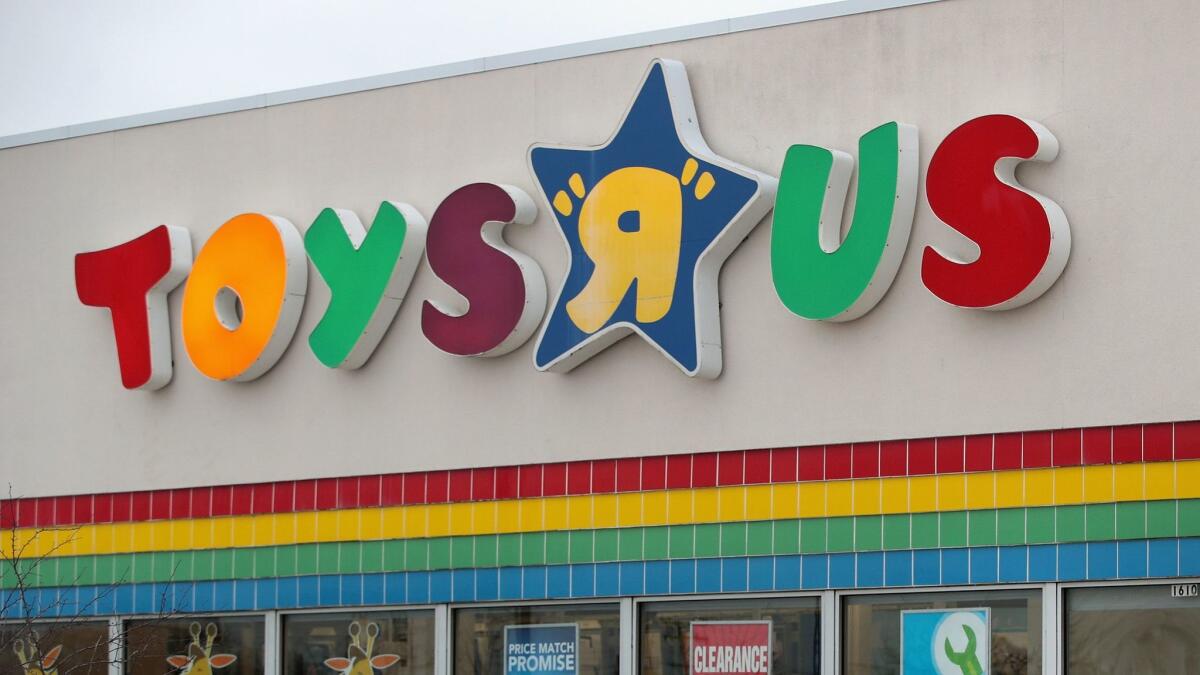Toys R Us is preparing to liquidate its U.S. operations, sources say

- Share via
Toys R Us Inc. is making preparations for a liquidation of its bankrupt U.S. operations after so far failing to find a buyer or reach a debt restructuring deal with lenders, according to people familiar with the matter.
Although the situation is still fluid, a winding down of the U.S. division has become increasingly likely in recent days, said the people, who asked not to be identified because the information is private. Hopes are fading that a buyer will emerge to keep some of the business operating or that lenders will agree on terms of a debt restructuring, the people said.
A representative for Toys R Us declined to comment.
The toy chain’s U.S. division filed for bankruptcy protection in September with the goal of emerging as a leaner business with a more sustainable debt load. The Wayne, N.J., company secured a $3.1-billion debtor-in-possession loan to maintain operations while it developed a plan to reduce its unmanageable $5-billion debt. But Toys R Us’ holiday sales were worse than expected, casting doubt on the chain’s viability.
The situation has also deteriorated for many of the retailer’s overseas divisions, which weren’t part of the bankruptcy. Toys R Us’ British unit put itself in the hands of a court administrator after talks to sell the business fell apart. Its European arm is also seeking takeover bids. And talks are being held to offload the growing Asian business, the company’s most profitable arm. It’s not yet clear what will happen to the Canadian unit, which filed at the same time as the U.S. division.
The downfall of Toys R Us can be traced back to a $7.5-billion leveraged buyout in 2005, when Bain Capital, KKR & Co. and Vornado Realty Trust loaded the company with debt to take it private. For years, the retailer was able to refinance its debt and delay a reckoning. But the emergence of online competitors, such as Amazon.com Inc., weighed on results. Massive interest payments also sucked up resources that could have gone toward technology and improving operations.
More to Read
Inside the business of entertainment
The Wide Shot brings you news, analysis and insights on everything from streaming wars to production — and what it all means for the future.
You may occasionally receive promotional content from the Los Angeles Times.










